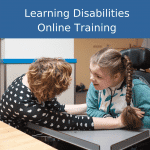Description
Infection Control Level 3 Online Training
Our Infection Control Online training teaches learners how to control the spread of infections and handle outbreaks safely. This is the advance course and prior knowledge of the level 2 training is important.
This course is highly recommended for those who are leading the cause of preventing and control infection within their workplace.
Infections that are caused either, through being in a care establishment (nosocomial) or as a result of receiving treatment (iatrogenic), can be prevented. Often, neither may appear until after people leave the care establishment.
Infections can spread quickly and harm vulnerable patients. So, it’s best to keep your employees updated on infection control precautions and skills.
- Developed by professionals
- Accredited by The CPD Accreditation Group
- 100% online, learn at your own time and pace
- Translates into over 100 different languages
- Instant certificate downloaded
It covers health and hygiene at work, including hand hygiene, PPE, and disposal of sharps.
This online CPD-accredited course is suitable for healthcare workers like:
- nurses,
- dentists,
- healthcare assistants,
- tattooists,
- vets,
- doctors, and
- cleaners.
Stay prepared and protect others with this training.
It is the responsibility of everyone working within the care industry to protect both themselves and the people they care for, from the effects of infection. This course will explore, in detail, how this can be achieved.
Not Completed Level 2? Take the infection control and prevention online level 2 training first.
Who is the infection control level 3 training for?
Level 3 Infection Prevention and Control (IPC) Online training is tailored for healthcare professionals with greater responsibility for infection control.
This usually includes:
- Senior nurses and other clinical staff: Individuals leading teams or with supervisory roles in patient care.
- Infection prevention and control specialists: Professionals dedicated to developing and executing IPC programs in healthcare settings.
- Outbreak management teams: Staff engaged in identifying, investigating, and managing outbreaks of infectious diseases.
Consider it as advanced training for those with strategic roles in infection prevention within healthcare settings.
When will I get my certificate?
Once you have successfully passed our course you will be able to download and print your certificate immediately.
As this course has been accredited by the CPD Group your certificate will contain the CPD logo and unique reference number.
Key Points
- Understanding Infection control
- Explain what is meant by infection, its signs, and causes.
- Identify how infection is spread
- Explain the importance of preventing the spread of infection
- Reducing the Risk of Infection
- Identify the measures that should be taken to minimise the spread of infection
- Explain the responsibilities of workers, the importance of legislation and risk assessment relating to infection control
- Controlling the Spread of Infection
- Explain the importance of personal hygiene in preventing the spread of infection
- Identify the key characteristics of effective cleaning, disinfection, sterilisation, and handling of sharps.
Click Here: Interested in face-to-face infection prevention control training instead or the train the trainer course on infection prevention & control training.
Level 3 IPC Online Course Outline:
Module 1: Understanding Infection Control
- What is infection and how to recognize its signs and causes.
- How infections spread and why it’s crucial to prevent their spread.
Module-2: Reducing the Risk of Infection
- Ways to minimise infection spread and using protective equipment.
- Your role, laws, and risk assessment in preventing infections.
Module 3: Controlling the Spread of Infection
- Keeping good personal hygiene to stop infections.
- Proper cleaning, disinfection, and handling sharps safely.
Conclusion:
- Recap what you learned in the course.
- Understand why infection control is essential for a healthy healthcare setting.
The Infection Control training Online level 3 introduces you to advance concepts. The course is more suitable for people with higher responsibility to uphold safety and care within a facility.
Frequently Asked Questions
What are the 3 levels of infection control?
There are three levels of infection control:
- Standard Precautions: Basic ways to prevent infections for everyone, like washing hands and using protective clothing.
- Transmission-Based Precautions: Extra precautions for people with known or suspected infections. These are used when infections can spread through contact, droplets, or in the air.
- Special Pathogen Precautions: Specific precautions for handling highly infectious diseases like Ebola or COVID-19. These are used when dealing with very dangerous infections.
Why is Infection Control Important
Benefits of taking infection control training online
Taking infection control training online has many benefits:
- Learn at your own pace, anytime.
- Accessible from anywhere with the internet.
- Costs less and no travel is needed.
- Review as much as you want.
- Interactive learning with quizzes and videos.
- Accredited and up-to-date.
- Different learning styles are available.
- Get certified quickly after completing the course.
Online training is convenient and effective for infection control knowledge and skills.
Who is Responsible for Infection Control?
What are the 4 stages of infection?
An infection has four stages:
- Exposure: When the person comes into contact with the germ.
- Early Signs: Feeling a bit unwell and tired.
- Full Sickness: Feeling the worst and can spread the infection to others.
- Recovery: Starting to feel better, and the body fights the germ.
Remember, infections can be different for everyone, and some may not have all these stages.
What is the difference between Infection Control Awareness Training and an Advanced Infection Control Course?
The main difference between Infection Control Awareness Training and an Advanced Infection Control Course lies in their level of depth and complexity.
Infection Control Awareness Training is for beginners. It teaches basic infection control, like handwashing and using protective gear.
An Advanced Infection Control Course is for healthcare pros and those who know about infection control already. It covers more complex stuff, like handling outbreaks and special healthcare settings.
What does the CQC do for infection prevention and control?
The CQC is in charge of checking and making sure healthcare places follow rules for infection prevention and control. They inspect and set standards, and if a place doesn’t follow the rules, they take action.
They also share information with other agencies to keep everyone safe and healthy. Their role is to protect patients and make sure healthcare is good and safe.
What are the principle of infection prevention and control?





